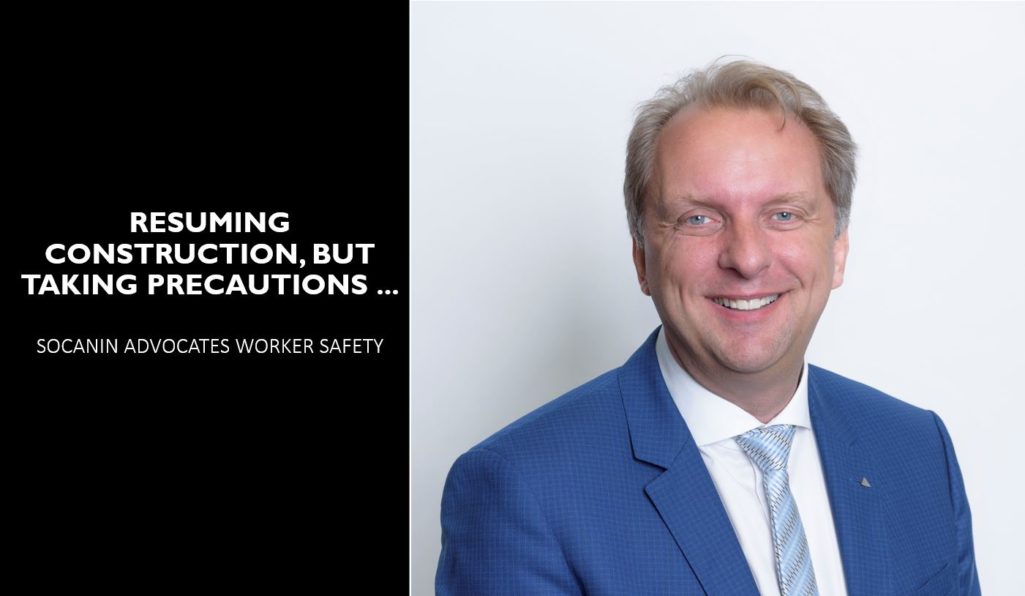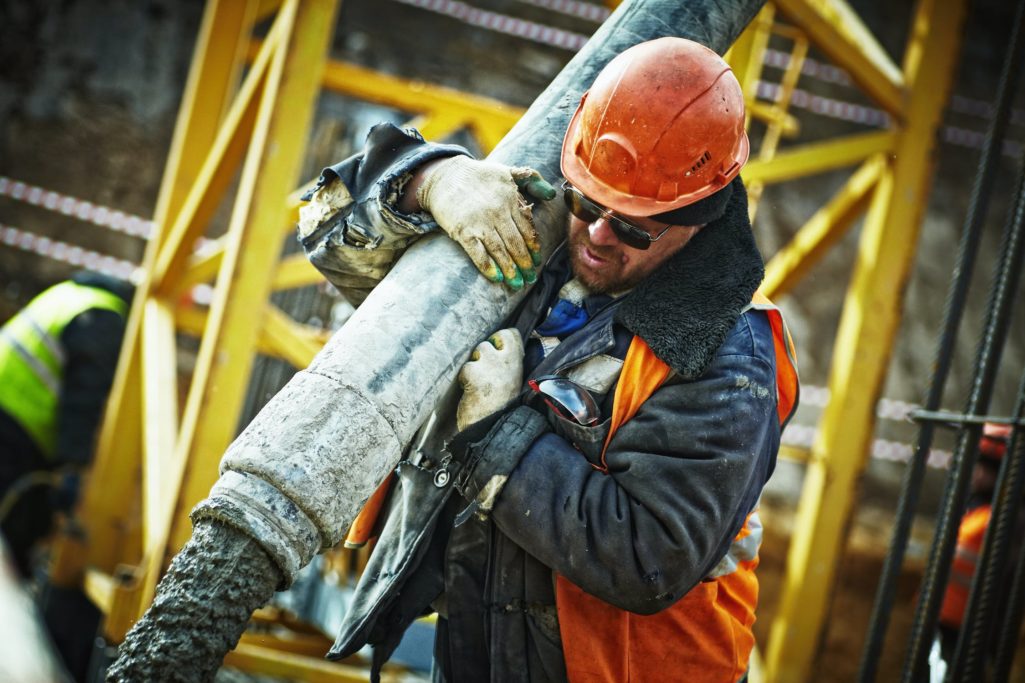
The spring season is a crucial period in the residential construction industry.
Construction sites are usually buzzing with activity and workers are in full swing to make sure they can deliver a residence or housing project on time, as per the contract they had agreed upon.
Of course, promotors watch closely, and need to make sure deadlines are met and that there are no cost overruns.
However, the spring of 2020 has taken a whole different turn, because of the pandemic that is affecting us all.
THE RISKS OF THE TRADE
Construction workers are confronted with health and safety risks almost every day. Sometimes even life-threatening situations.
Many statistics in Quebec speak to that sad reality.
In 2017, 16 workers died of work-related accidents, while 47 others passed away of job-related illnesses or diseases.

In 2018, on provincial construction sites, there were 711 falls that caused significant injuries, 13 of which were fatal.
Pursuant to the Loi sur la santé et la sécurité du travail (law on health and safety at the workplace), employers are liable to protect their workers, whom also have an important role to play. Fortunately, enormous progress and a positive shift in attitude in that regard have taken place over the last few decades.
Discussions around safety do not, however, always go smoothly. On one hand, employees are very steadfast about their safety. On the other, entrepreneurs and promotors will often be reluctant due to the inherent costs of that aspect of work.
THE NEW PERIL : COVID-19
Based on its evaluation of the current situation, the Quebec government, on April 20, gave the go-ahead to allow construction activities to resume, mainly on the residential side.
Although only partial for the time being, that new beginning will come about under unprecedented conditions.
The CNESST will undoubtedly make a point of ensuring that the basic rules and regulations dictated by “Santé publique du Québec” be respected. Social-distancing and frequent hand-washing are atop that list.
The direct consequence of the application of those rules will be a slowdown in the actual work process, hence very likely leading to an increase in costs.
Who, between the entrepreneur and promotor, shall undergo that shortfall (which shall also affect the profitability of the project), in order to secure the safety of the on-site workers?
A pandemic of such proportions was totally unforeseen (the last such one dating back to 1918). Therefore, a specific clause to that effect was obviously not going to be added to contracts linking the promotor to the entrepreneur. It is common to include a text that describes eventual provisions, should a case of force majeure arise. The latter keeps open the possibility of negotiating some kind of settlement.
Furthermore, even when one is duly covered, insurance companies would not agree to offer such protection without adding an “excessive” deductible to an already-costly policy.
NEGOTIATING THE WORKER’S HEALTH
So again: who, between the entrepreneur or the promotor, shall absorb the additional costs incurred by the slowdown on the sites, through the application of basic rules in these times of pandemic?
The promotor will no doubt want to (literally) “wash his hands” of the possibility of having to cough up that much more money, while the entrepreneur will hope to “distance” himself from that unforeseen expense…
One and the other will aim at lowering the financial impact of that new approach, by outstretching the rules and regulations dictated by “La Santé publique du Québec”. And this, potentially at the detriment of the worker, stuck between a rock and a hard place (an administrative warfare).
In the case of a public project, the discussion will be far less intense, and the government will pick up the tab, only to (of course) later turn it over to the taxpayers.
However, as far as private projects go, the promotor will very likely find himself in the losing end of the spectrum. His only option will then be to ask the government for a refund, and then a help program. If appropriate, the promotor will then have to allocate that expense to a new item of expenditure, “covidian” in this case. Of course, this will have an impact on the return on the investment…
THE SOCANIN MEDICINE
In times of peace or war alike, nothing is more important than health. The colossal fight against that vicious and merciless pandemic that mankind is involved in still is not over with.
If the government allowed for construction sites to reopen, it is certainly not to expose that many more people to the virus, but to relaunch the economy. A very touchy exercise of balance between the direct and collateral damages, namely deaths directly due to COVID-19, or other deaths (suicides, violence), those ones caused by a suddenly severely ailing economy.
Promotors and entrepreneurs alike must show respect to the workers who have gone back on sites, as well as taking this situation very seriously.
The assurance that those workers be in a safe (and respectful of new health norms) environment is paramount.
This financial pill may be bitter to swallow, but no other option may even be contemplated.
Because of their ability to discern and to be fair, calling upon seasoned project managers (who are used to see above and beyond silos) to oversee the worker safety aspect will be a major asset for years to come.
To learn more about our services or to discuss with Mr. Pieter ‘s Heeren about your project, contact us!
